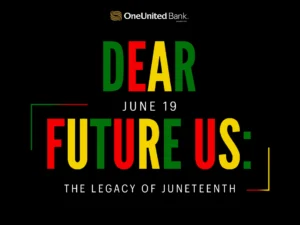Simply stated, Critical Race Theory, or CRT, explains how the collective struggles of Black Americans are the result of systemic racism and not just “a few bad apples” or well-publicized racist incidents. As the largest Black owned bank in America, OneUnited Bank applauds CRT scholars who are interrogating the role that systemic racism plays on the everyday lives of the Black community, including its impact on the racial wealth gap.
See our YouTube series: Race Trumps Wealth
CRT recognizes that racism is not a bygone relic of the past. Instead, it explains how the legacy of slavery, segregation, and the imposition of second-class citizenship on Black Americans and other people of color continue to permeate the social fabric of America.
CRT is a body of legal scholarship and an academic movement of US civil-rights scholars and activists who critically examine the intersection of race and U.S. law.
CRT originated in the mid-1970s in the writings of several American legal scholars, including Derrick Bell and Kimberlé Crenshaw. It draws from thinkers such as Sojourner Truth, Frederick Douglass, and W. E. B. DuBois, as well as the Black Power movement. The first formal meeting centered on critical race theory was the 1989 “New Developments in Critical Race Theory” workshop organized by Kimberlé Crenshaw which effectively created the field.
CRT emphasizes that formally colorblind laws can still have racially discriminatory outcomes and that race can intersect with other identities, such as gender and class, to produce complex combinations of power and advantage for white Americans, while denying power and advantages to Black Americans.
A few key tenets of Critical Race Theory include:
- Race is not biologically real but a social construct. Science refutes the idea of biological racial differences. In other words, whiteness is a made-up construct.
- Racism is a pervasive feature of society, embedded within systems and institutions, like the legal and banking system, that replicate racial inequality.
- Systemic racism bears primary responsibility for reproducing racial inequality.
- Claims of meritocracy or “colorblindness” are false. Racism is often cloaked in terminology such as “mainstream,” “normal,” or “traditional” values or “neutral” policies, principles, or practices.
- Racist incidents or domestic terrorism are not aberrations or about a few “bad apples”, but instead are the continuous result of structural and systemic racism, which instills fear in the Black community.
- People’s everyday lives and the lived experiences of Black Americans, including those preserved through storytelling, must inform how systems need to be reconstructed.
In summary, race trumps wealth or systemic racism impedes Black Americans from reaching their full potential. As we encourage our community to focus on OneTransaction to close the wealth gap for their family, we must also focus on public policy changes that are needed to address systemic racism.

















